How The Summer Heat Affects Your Tomato Plants
As an Amazon Associate and member of other affiliate programs, I earn from qualifying purchases.
For those of us living in the south, July and August mark some of the hottest days of the year. Temperatures can hover in the 100s and when you add in the humidity, you really start to see the effects of summer on your tomato plants.
While it’s true that tomatoes are sun-loving plants that are tolerant of high temps, they do behave differently during the hottest summer months.
It’s not only the daytime temperatures that affect tomato plants. Just like they won’t produce as well in early spring when nighttime temps drop too low, they are also affected by nighttime temps that remain in the upper 70s and higher.
What happens to tomato plants when it’s really hot?
There are a few things that happen to your tomato plants when the weather gets really hot and humid, and you’ll have to adjust your strategy and expectations during these super hot months.
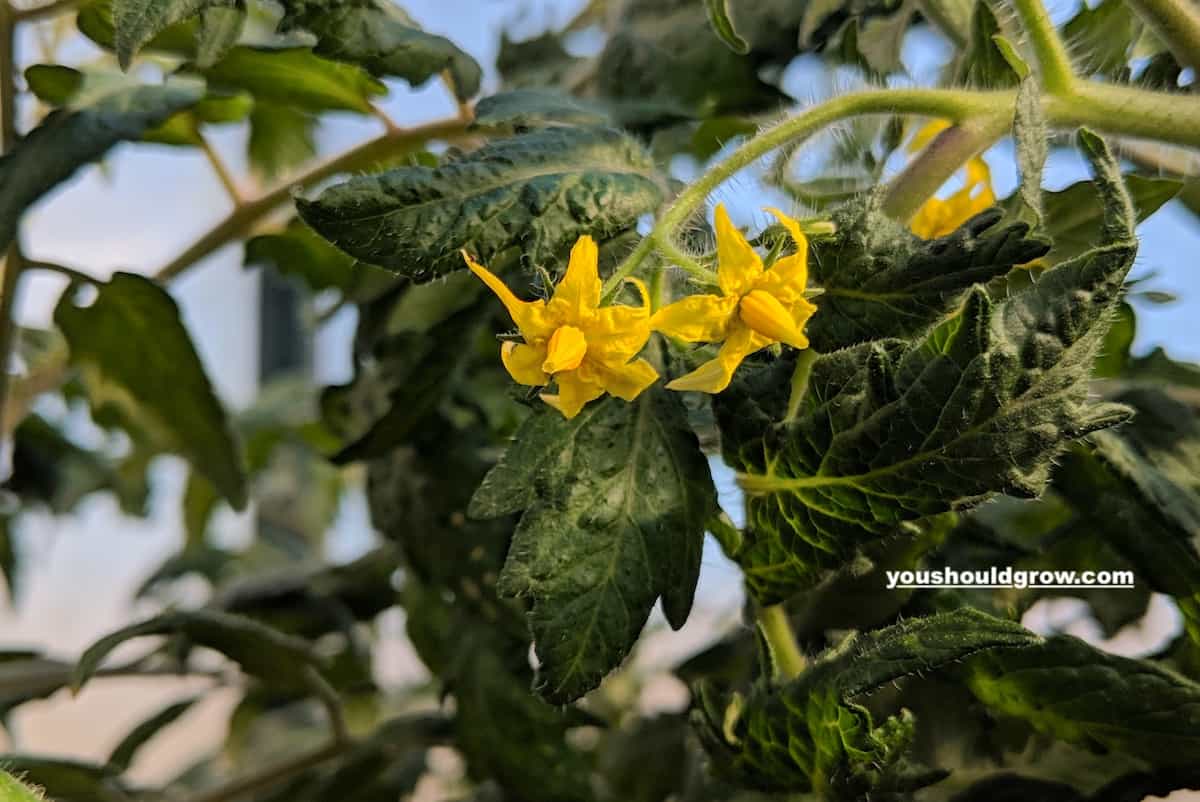
1. Decreased fruit production
During super hot days, tomato plants will not be making as much fruit as usual. Even your super productive varieties don’t produce quite as well when it gets in the upper 90s to 100s.
What you’ll see is your tomato plants will drop flowers, and this is because growing fruit takes a lot of energy and water. When it gets stressed by heat, the plant starts to conserve energy just to stay alive.
Humidity also makes the pollen sticky so it can’t pollinate the stamen, so even flowers that bloom won’t get good pollination. This could account for some weird looking tomatoes and less fruit overall.
2. Damage to ripening fruit
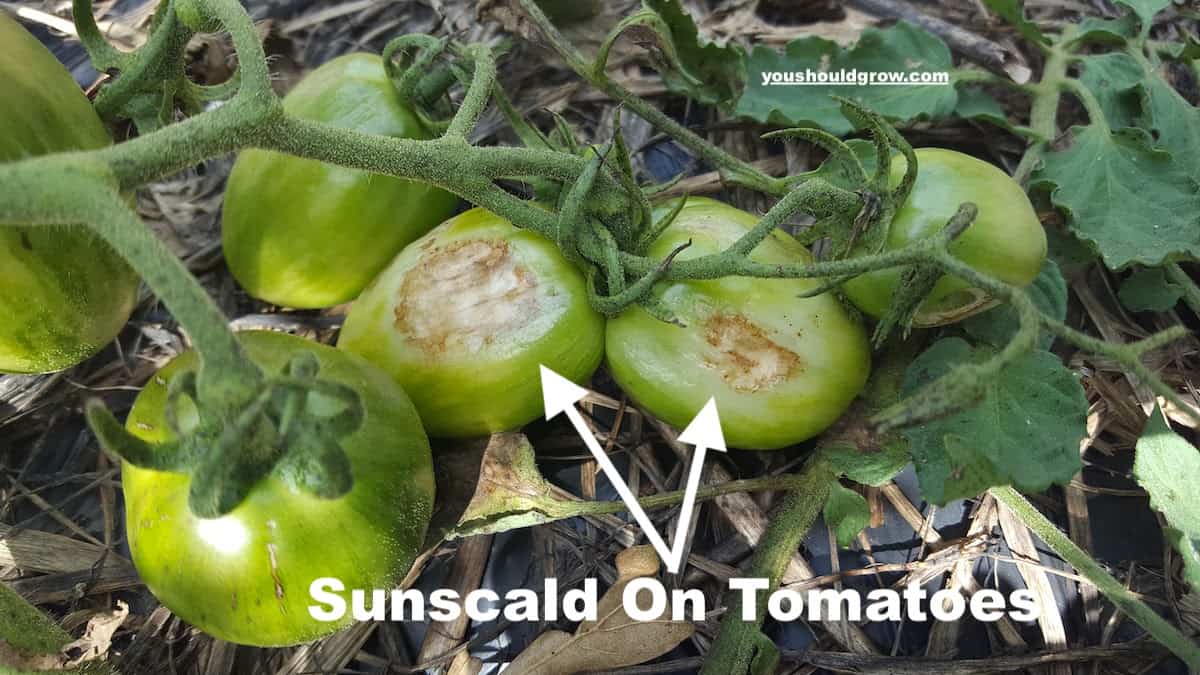
Fruit that is still ripening on the vine will mostly be okay, but if the sun is brutally beating down on them, you can end up with sunburned fruit.
Sunburned tomatoes will have a white to brown papery patch on their skin. Unfortunately, there’s no treatment or undoing of the sunburn so these tomatoes will have to be tossed into the compost pile.
Not only are they prone to sun damage, but the heat can slow ripening. So during the summer, we suggest you pick your fruit as soon as they start to turn color.
3. Slowed growth, increased water needs
Once the plants are in preservation mode, they slow down their growth a good bit. On one hand, this means less work for you but it also means you’re not going to get much more fruit.
You’ll also notice even healthy tomato plants develop curled leaves. Curling the leaves decreases surface area facing the sun, and is a sigh that your tomato plant is under heat and water stress.
Whatever watering schedule you had for your plants, hot days require you to double it…up to twice a day if necessary. This is also not a good time to be adding fertilizer to your tomato garden. Too much nitrogen can stress your plants even more and lead to problems like blossom end rot.
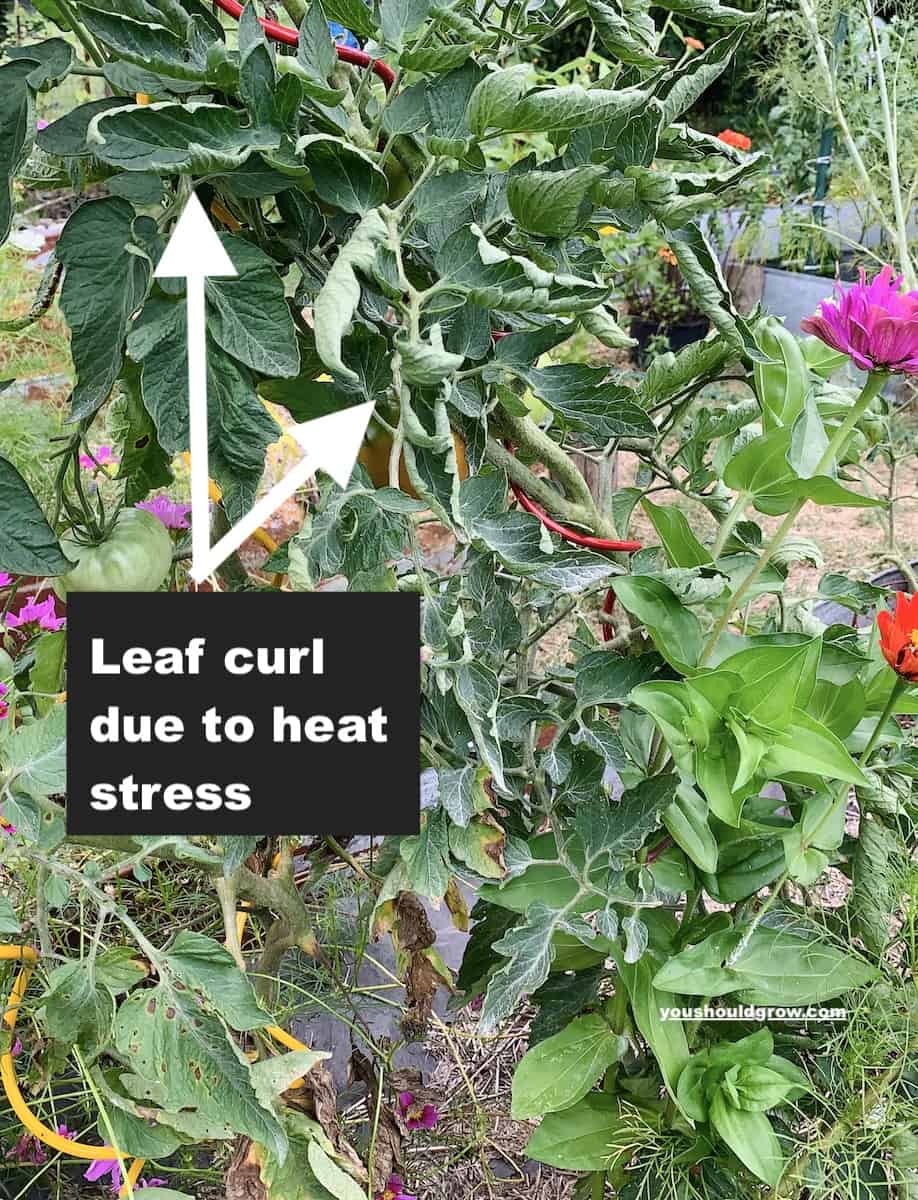
What can you do about it?
Good planning at the time of planting is one of the best ways to combat summer heat stress for your tomatoes. Understanding how the sun rises and sets over your garden is one of the best ways to help your tomato plants.
While tomatoes do need a good 6-8 hours of sun, in general, morning sun is gentler than afternoon sun. Choosing a location that gets some afternoon shade will help your tomato plants be more productive for longer.
Use shade cloth
If you don’t have any natural shade for your garden, you might consider hanging some shade cloth over your tomato plants. Although it seems counterintuitive (since tomatoes need full sun), we’ve had great success growing tomatoes under 50% shade cloth for the entire season.
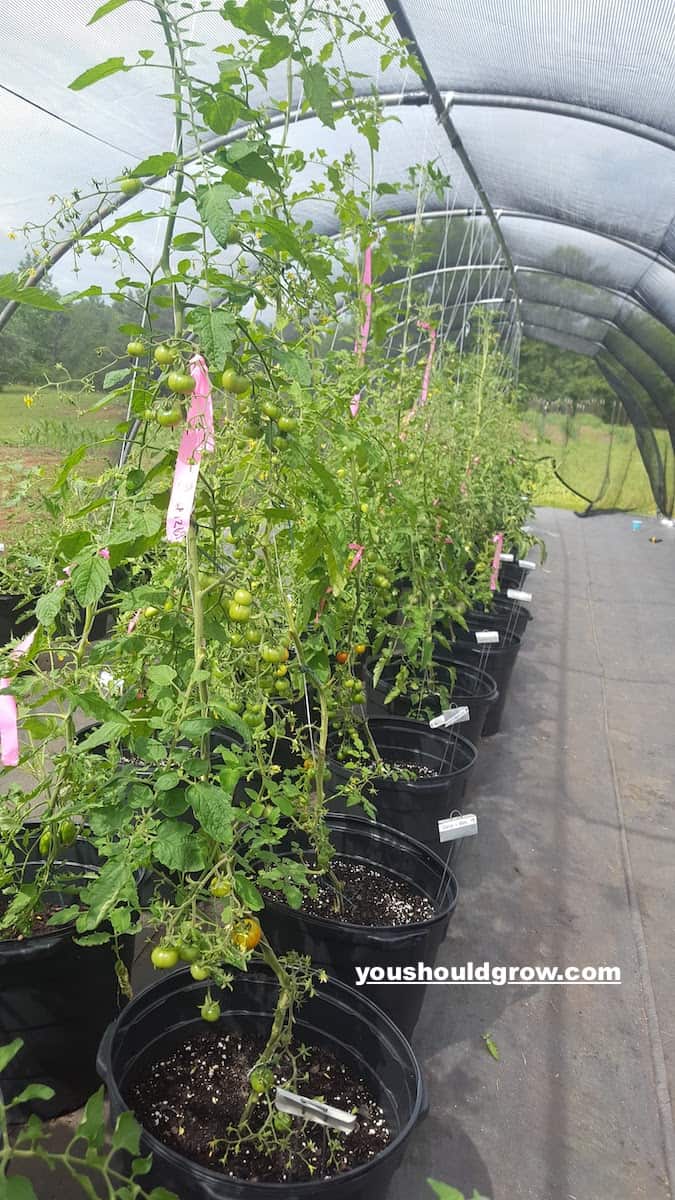
Plant heat-tolerant tomatoes
| Bella Rosa Hybrid, determinate, 75 days, red, large Bred for the southeast USA | Porter or Porter Pink Hybrid, indeterminate; 78 days; pink, plum, small (4 ounces) | Super Fantastic Hybrid; indeterminate; 70 days, red, large |
| Big Beef Hybrid, indeterminate, 73 days, red, medium/large (10 ounces) | Sanibel Hybrid, determinate, 75 days, red, medium/large (12 ounces) | Sweet 100 Hybrid, indeterminate, 70 days, red, cherry |
| Florida 91 Hybrid, determinate, 72 days, red, medium/large (10 ounces) | Solar Fire Hybrid, determinate, 72 days, red, medium (10 ounces) | Arkansas Traveler Heirloom, indeterminate, 90 days, pink, medium (6 ounces) |
| Fourth Of July Hybrid, indeterminate, 49 days, red/pink, small (4 ounces) | Spitfire Hybrid, determinate, 75 days, crimson, small/medium (5-6 ounces) | Costoluto Genovese Heirloom, indeterminate, 85 days, red, large |
| Heat Wave II Hybrid, determinate, 68 days, red, medium (7 ounces) | Sunbeam Hybrid, determinate, 70 days, red, medium (6 ounces) | Green Zebra Heirloom, determinate, 78 days, green, small (3 ounces) |
| Homestead 24 Hybrid, determinate, 80 days, red, medium (8 ounces) | Sun Leaper Hybrid, determinate, 82 days, red, medium (9 ounces) | Super Sioux Heirloom; indeterminate; 70 days, red, globe |
| Manalucie Hybrid, indeterminate, 82 days, red, large globe | Sun Chaser Hybrid, indeterminate, 72 days, red, medium (7 ounces) | Sioux Heirloom; semi-determinate, 78 days, red, medium (6 ounces) |
| Mountain Crest Hybrid, indeterminate, 74 days, red, medium (10 ounces) | Sunmaster Hybrid, determinate, 72 days, red, medium (7 ounces) | Quarter Century Heirloom, indeterminate, 85 days, red, large (12 ounces) |
Is it worth keeping them alive?
Depending on when your first frost date occurs and the type of tomato that you’re growing, it may not even make sense to try to keep your plants alive through August.
Certain varieties, like Brandywine, that take a long time to make fruit may not get another set of ripe fruit, but then again there’s always fried green tomatoes.
How are your tomatoes faring in the summer heat?
Share your experience in the comments below!


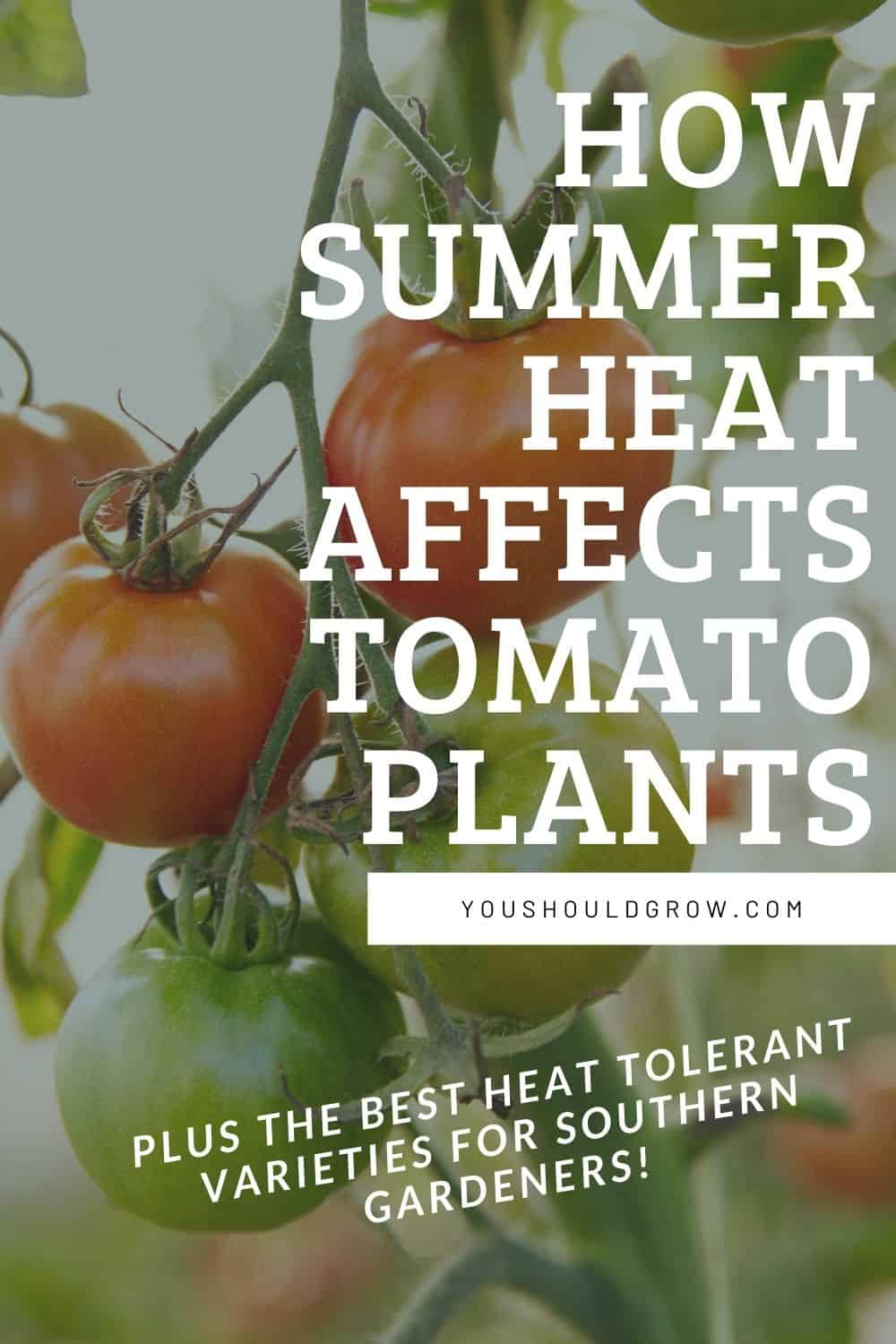
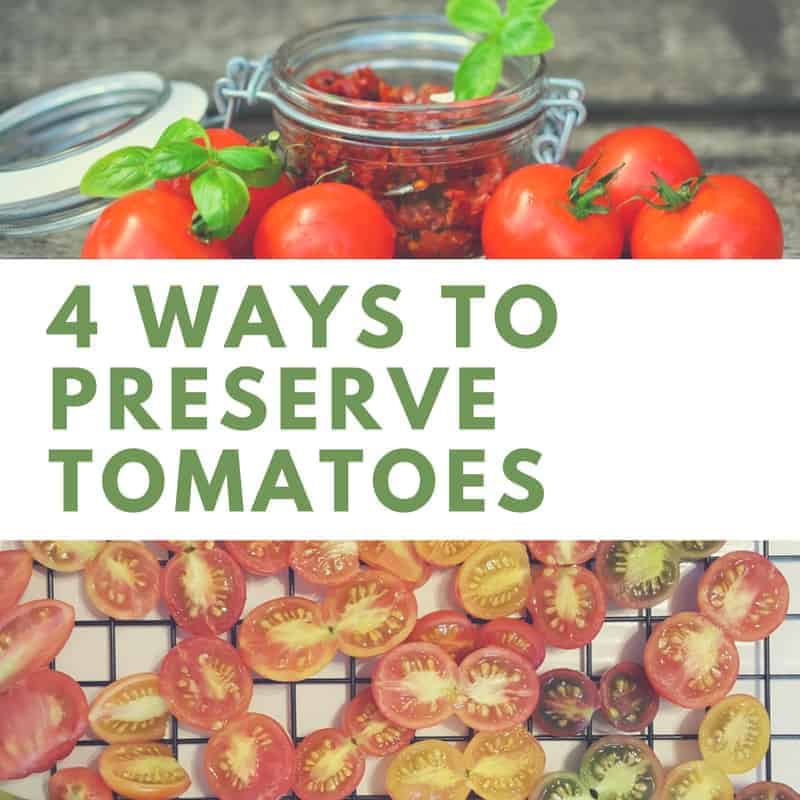
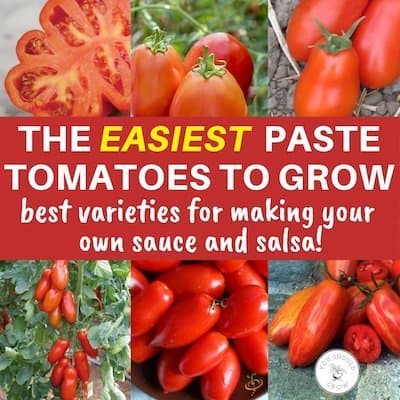
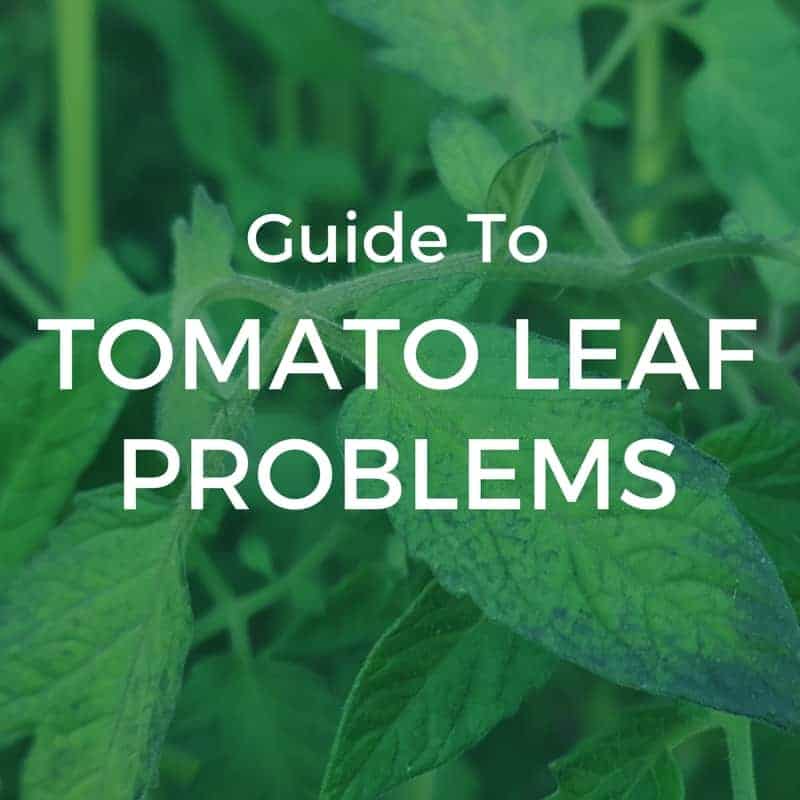

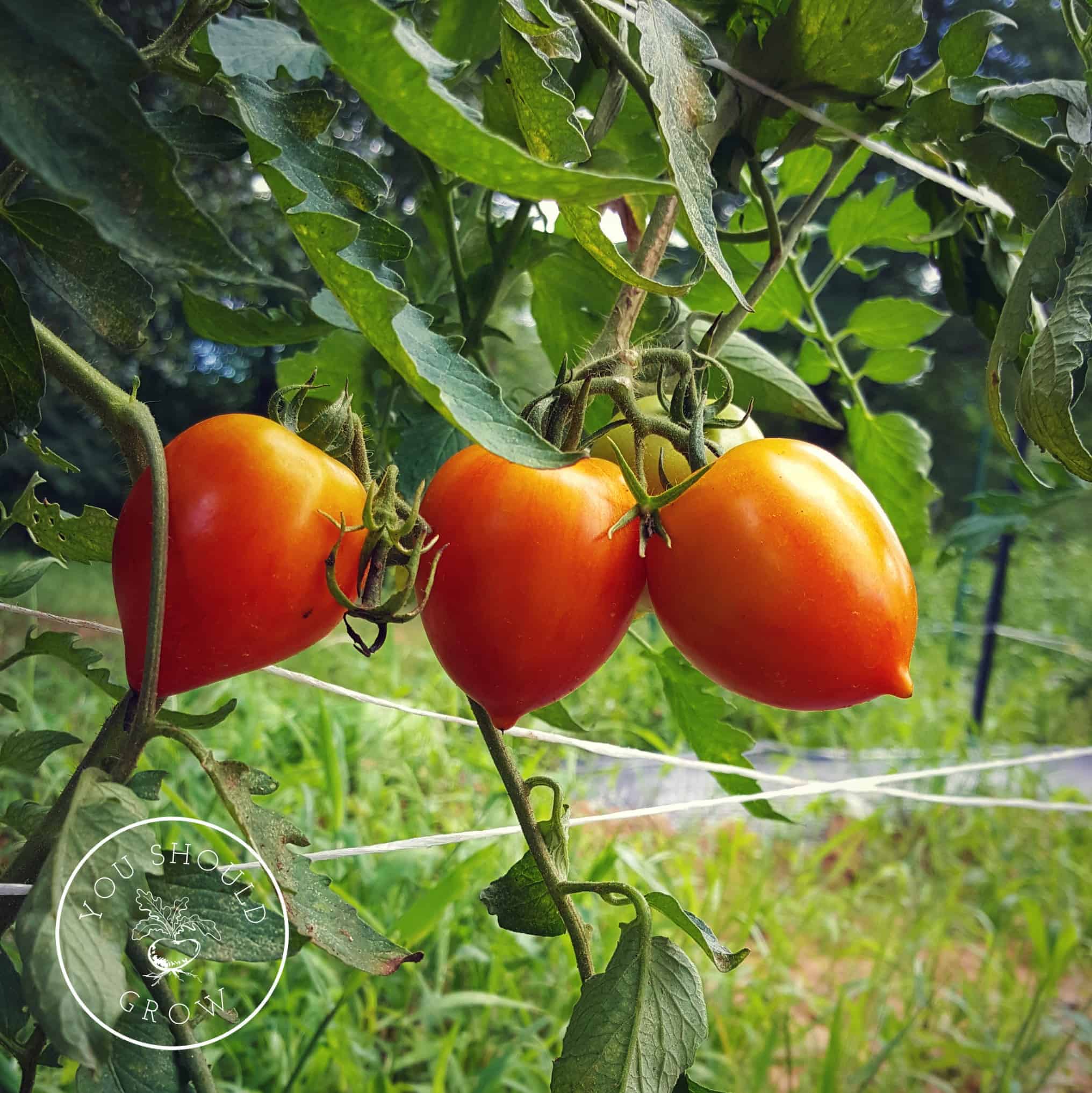
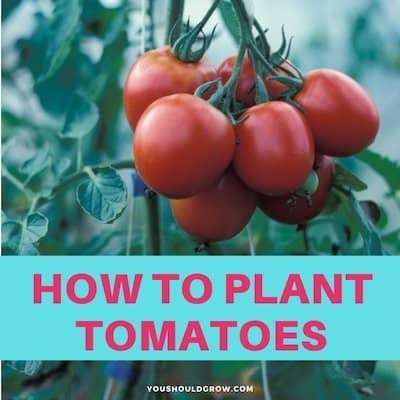
Here in Illinois, we’ve had an extremely hot beginning to our summer. My tomatoes are already showing signs if sunscald and it’s not even July! I’m planning to build some sort if shelter for them.
I am not sure if its heat stress or the straw I bought to mulch my garden with The tomato plants are looking deformed and twisted and the pepper plant all look like dwarfs Help please